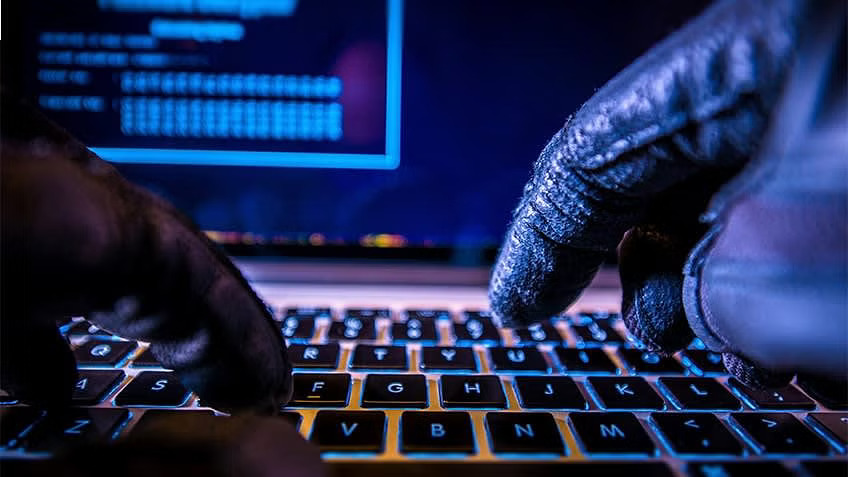Are you fascinated by the world of cybersecurity and intrigued by the idea of hacking? Do you want to use your hacking skills for good rather than evil? If yes, ethical hacking may be the perfect career path for you.
With the increasing frequency and sophistication of cyber threats, the demand for ethical hackers has skyrocketed in recent years. Ethical hacking is a crucial aspect of cybersecurity that involves identifying vulnerabilities in computer systems, networks, and applications to protect them from malicious attacks. Ethical hackers work with organizations to simulate cyber attacks and identify security weaknesses before
malicious hackers can exploit them.
If you’re interested in pursuing a career in ethical hacking, you’re in the right place. In this article, we’ll provide you with a complete guide on how to become an ethical hacker, outlining the essential skills and steps required to launch a successful career in this field.
Whether you’re a student or a working professional looking for a career change, this guide will provide you with the information you need to get started on the path to becoming an ethical hacker. So, let’s dive in and explore what it takes to become an ethical hacker.
What is Ethical Hacking?
Ethical hacking, also known as “white hat” hacking, refers to using hacking techniques and tools for legitimate purposes, such as identifying and fixing security vulnerabilities in computer systems and networks. Unlike malicious hacking, which aims to gain unauthorized access to systems for personal gain or to cause harm, ethical hacking is performed with the permission and cooperation of the system owners.
As businesses and individuals increasingly rely on technology to store sensitive information and conduct transactions, the threat of cyber-attacks has become a major concern. Cybersecurity breaches can result in the theft of valuable data, financial loss, and damage to an organization’s reputation. Ethical hacking plays a vital role in protecting against these threats by identifying weaknesses in security systems before malicious hackers can exploit them.
In ethical hacking, a trained professional — an ethical hacker or penetration tester — uses the same methods and tools as a malicious hacker to test a system’s vulnerabilities. They may attempt to gain access to sensitive data, test the effectiveness of firewalls and other security measures, and perform other tests to identify potential vulnerabilities. Once identified, these weaknesses can be addressed to improve the system’s overall security.
Also Read: Best Practices for Cybersecurity: A 2024 Guide
Role of an Ethical Hacker
The role of an ethical hacker, also known as a white hat hacker, is becoming increasingly important in cybersecurity. The responsibilities of an ethical hacker may vary depending on the organization they work for. However, they typically involve performing vulnerability assessments and penetration testing to identify and exploit vulnerabilities in a controlled environment. They also work with system administrators and developers to patch vulnerabilities and develop more secure systems.
Here is a list of responsibilities an ethical hacker has at the workplace:
- Conducting vulnerability assessments and penetration testing on computer systems, networks, and applications
- Identifying and exploiting security weaknesses in a controlled and responsible manner
- Reporting discovered vulnerabilities to the appropriate parties, such as system administrators or software developers
- Providing recommendations for improving security and mitigating potential risks
- Staying up-to-date with the latest trends and techniques in cybersecurity, including new attack vectors and defensive strategies
- Maintaining ethical standards and following established protocols for conducting security testing and reporting vulnerabilities
- Collaborating with other cybersecurity professionals, such as security analysts and incident response teams, to address security threats and incidents
- Ensuring compliance with relevant regulations and standards
- Continuously learning and developing new skills to stay current with evolving threats and technologies.
Skills Required to Become an Ethical Hacker
Becoming a white hat ethical hacker requires a combination of technical and non-technical skills. Here are some of the essential skills you need to acquire.
Technical Skills
- Proficiency in programming languages like Python, C, C++, and Java
- Knowledge of networking protocols and operating systems
- Expertise in penetration testing and vulnerability assessment
- Understanding of cryptography and encryption techniques
- Familiarity with various hacking tools and software
Non-Technical Skills
- Strong problem-solving and analytical skills
- Excellent communication and interpersonal skills
- Ethical mindset and a strong sense of integrity
- Ability to work under pressure and meet tight deadlines
- Continuous learning and willingness to stay updated with the latest cybersecurity trends and threats
To become a certified ethical hacker, you must obtain a certification such as the Certified Ethical Hacker (CEH) credential. The CEH certification your knowledge and skills in ethical hacking and penetration testing. It also demonstrates your commitment to the ethical standards of the cybersecurity industry.
Also Read: How To Get Into Cybersecurity in 2024? A Complete Guide
Essential Tools Used by Ethical Hackers
In ethical hacking, professionals use several tools to carry out their work. These tools help detect and identify vulnerabilities and security flaws in computer systems and networks.
- Nmap is a popular security scanner and network investigation tool used by ethical hackers to locate hosts and services on a network. It is also used to identify security flaws that malicious actors could exploit.
- Wireshark is another critical tool for network analysis, software development, and other areas. This packet analyzer can capture and display network traffic, providing valuable insights into network activity.
- Metasploit is an essential tool ethical hackers use to identify vulnerabilities and check computer system security. It is a comprehensive framework with a suite of tools and resources that can be customized to suit specific requirements.
Another vital tool used in ethical hacking is Burp Suite, specifically designed to identify weaknesses in web applications. This tool helps ethical hackers find potential vulnerabilities in web applications before malicious actors can exploit them.
In addition, Kali Linux is a Debian-based Linux distribution with a wide selection of security and penetration testing tools. Ethical hackers often use this tool to carry out their work as it provides them with the necessary resources to detect and identify security flaws in computer systems and networks.
How To Become an Ethical Hacker in 10 Steps
Becoming an ethical hacker is an exciting journey as you dive deep into IT while most people skim the surface. If you think this is your path, check out these steps to become an ethical hacker.
Step 1: Master Linux and Unix
Linux and Unix are open-source operating systems that provide better security for computer systems. As an ethical hacker, it is essential to understand Linux well since it is one of the most widely used operating systems for hacking. Knowledge of Linux provides access to a vast array of hacking tools, and Kali Linux is a widespread distribution custom-built for hacking purposes.
Step 2: Learn Programming Languages
Ethical hackers must be proficient in programming languages, as it is the foundation of hacking. The C programming language is the backbone of Linux and Unix. Therefore, it is essential to have a good understanding of C programming. Additionally, having knowledge of multiple programming languages such as Python, JavaScript, PHP, and SQL will provide an upper hand while dissecting and analyzing a piece of code.
Step 3: Maintain Anonymity
Anonymity is essential for ethical hackers to remain untraceable while performing their activities. It is crucial for ethical hackers to hide their identity to avoid detection by black hat hackers. Using Anonsurf, Proxychains, and MacChanger are ways to maintain online anonymity.
Step 4: Network Concepts
Having in-depth knowledge of networking tools such as Nmap, Wireshark, and understanding networking concepts such as TCP/IP network, subnetting, network masks, and CIDR are vital for ethical hackers. Understanding various networks and protocols can help in exploiting vulnerabilities.
Step 5: Learn About the Dark Web
The dark web is part of the internet that is hidden and not accessible to search engines. Although it is known for criminal activities, not everything is illegal, and the dark web has legitimate uses. Ethical hackers must understand the workings of the dark web and learn how to access it using tools such as Tor.
Step 6: Cryptography
Cryptography is the art of encryption and decryption and is an essential asset for an ethical hacker. Encryption is used in various aspects of information security, such as authentication, data integrity, and confidentiality. Hackers must learn to identify and decrypt encryption to access valuable information.
Step 7: Dive Deep into Hacking Concepts
Penetration testing, vulnerability assessment, and SQL injections are some of the hacking concepts that ethical hackers need to learn. Keeping up-to-date with the latest security changes and learning the latest tools and techniques for hacking and securing a system is vital.
Step 8: Identify Vulnerabilities
Vulnerabilities are weaknesses or loopholes in a system, and ethical hackers need to scan systems and networks to identify them. They can also try to write their vulnerabilities and exploit the system. Vulnerability identification tools like Nessus, OpenVAS, Nikto, Nmap, and Wapiti in Kali Linux OS can help identify vulnerabilities.
Step 9: Experiment and Practice
Practicing different hacking techniques in various scenarios is crucial to becoming a successful ethical hacker. Experimenting with attacks and tools can provide experience and knowledge of various hacking techniques.
Step 10: Join a Community
Joining a community or a forum of expert hackers is an excellent way to learn and share knowledge. Platforms like Discord, Facebook, and Telegram have communities that ethical hackers can join to learn from other hackers worldwide.
Also Read: Cybersecurity Job Description: A Complete Guide
Ethical Hacking Career: Things to Know
Job Outlook
The demand for ethical hackers is expected to grow rapidly in the coming years as more organizations become aware of the importance of cybersecurity. With the increasing number of cyber attacks, there is a need for skilled professionals who can prevent and mitigate these attacks. According to the U.S. Bureau of Labor Labor Statistics, the demand for information security professionals will increase by 32 percent by 2023.
Growth
The growth potential in the field of ethical hacking is significant. As technology continues to evolve, so do the threats posed by cybercriminals, including state-sponsored ones. Ethical hackers will be needed to protect against these threats, and the field is expected to continue to grow in response. Those with experience and expertise in the field can expect significant career advancement and growth opportunities.
Salary
Ethical hacking is a high-paying field, with professionals earning competitive paychecks. The average salary for an ethical hacker in the United States is about $107,000 per year, according to Salary.com. It’s worth noting that salaries can vary depending on experience, location, and industry, with those in the finance and healthcare sectors often earning higher wages.
Job Security
Job security is high in ethical hacking, as the demand for skilled professionals in this area is expected to continue to grow. With cybersecurity threats becoming more prevalent, organizations will continue to invest in protecting their systems and data, providing a steady stream of job opportunities for ethical hackers. Additionally, as long as there are cybercriminals, the need for ethical hackers will remain, providing job security in this field for the foreseeable future.
Here’s A Way To Become an Ethical Hacker
The field of cybersecurity is in high demand and continues to grow at a rapid pace. Ethical hacking, one of the critical areas in cybersecurity, plays a vital role in ensuring the security of an organization’s digital infrastructure. With the right knowledge and training, you can learn how to become an ethical hacker proficient in using the latest tools and techniques to secure networks and systems.
A cyber security bootcamp bootcamp with a comprehensive curriculum covers offensive and defensive cybersecurity, network security, digital forensics, and more, allowing learners to develop expertise in this field in just six months.
This course will teach you the essential skills to master cybersecurity to help you break into one of the world’s fastest-growing industries. Enroll today and take the first steps into a promising career in ethical hacking.
You might also like to read:
How to Build and Implement Cybersecurity Skills
How to Become a Cybersecurity Engineer? A Complete Guide
How to Become an Ethical Hacker: A Complete Guide






